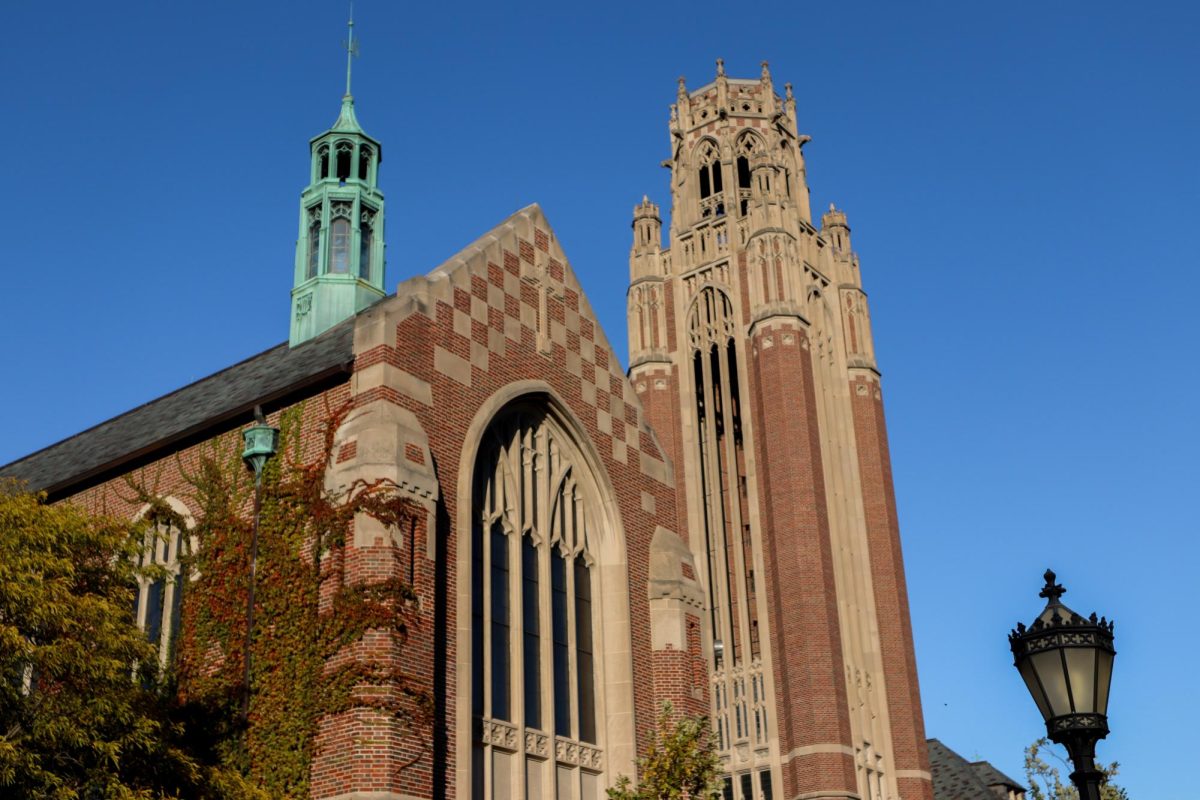As a third year in the College, I’ve attended events at every fraternity house on campus, donated to Anchor Slam, and have close friends involved in Greek life. I hope they won’t be too upset with what I’m about to say: Greek life has no place on this—or any—college campus.
It seems that every few months, a new fraternity scandal sweeps campus, whether it’s police responding to reports of sexual assault at Delta Upsilon (DU) or Psi Upsilon (Psi U), or the intensely racist and misogynistic e-mails (sent between 2011 and 2015) leaked from the Alpha Epsilon Pi (AEPi) listhost.
Some gems from past years include:
DU’s party entitled “DU Presents: Conquistador Bros and Aztec Hoes” in 2012 (the Facebook event encouraged party-goers to bring “an unlimited need to conquer, spread disease, and enslave natives”) and, in the same year, the fraternity’s hanging of a Confederate flag from a window.
Also in 2012, Alpha Delta Phi (Alpha Delt) pledges were seen mowing their lawn wearing sombreros and blaring Latin music.
In 2013, the now-charterless Phi Delta Theta (Phi Delt)—a nationally dry fraternity that cheekily referred to itself as “That Place” on Facebook events for parties and other events thrown at the house that certainly allowed alcohol—received 79 packages addressed to “Reggin Toggaf,” a racist and homophobic slur if read backwards (frat brothers pointed this out to the African American postal carrier after all 79 boxes had been carried to the porch). (Representatives from Phi Delt maintain they were the victims of an inter-fraternity prank.)
Before proceeding, I must stress that I’m not trying to devalue positive experiences of students in Greek organizations. I’m fully aware that they allow students to form friendships, network, and raise money for charity. Nonetheless, it’s necessary to point out the supposed “benefits” of Greek life are easily enjoyed elsewhere, especially at UChicago, home to a nearly limitless amount of RSOs.
Some universities seem to think Greek life is more trouble than it’s worth. In 2014, Wesleyan University required its remaining fraternities become co-ed, or face being shut down. By the year’s end, they were gone, and their lawsuit against the university dismissed by a state judge. The same year, Amherst College barred students from joining any single-gender social organization. More recently, Harvard announced that starting with the class of 2021, students would be ineligible to hold leadership positions in student groups if they join an unrecognized single-gender social group. Why has UChicago remained idle while other elite institutions are taking action to reign in their Greek communities? The answer is simple: money.
Statistically, alumni who’ve participated in Greek life are more likely to donate money to their alma maters than unaffiliated students. To take action against Greek life on campus could jeopardize the influx of what is likely a sizeable amount of money. UChicago’s tendency to value its brand over the safety, health, and general well-being of students confirms the administration’s implicit belief that human life has a price tag—and the University is thrifty.
Recently, Greek life has attracted the attention of academics; their findings have been published in journals like the NASPA (Student Affairs Administrators in Higher Education). A 2009 study found that 86 percent of fraternity house residents were regular binge drinkers, as opposed to 45 percent of non-fraternity men, while a 2007 study by John Foubert, a professor in Okahoma State University’s School of Educational Studies, found that fraternity brothers are three times more likely to commit sexual assault than unaffiliated men. In context, Brett Sokolow, president of the National Center for Higher Education Risk Management’s statement that “Sexual assaults will always cluster at the intersection of privilege and alcohol” is extremely worrisome.
Given the subjective nature of the article run May 24, “It’s All Greek to Me”, that I am responding to, I wanted to remain as objective as possible. Unfortunately, I cannot. Though I’m grateful for the happiness that Greek life has provided my friends who are involved, I’m outraged that my friends who’ve endured racism and sexual assault are denied justice and forced to sit through the University’s continued inaction.
I’d like to stress that inciting hatred against students involved in Greek life isn’t my intent. Painting fraternities and sororities as our racist and misogynist enemies removes our collective responsibility to dismantle racist and misogynistic structures. Your fellow students aren’t “bad apples,” but small parts of an awful orchard that extends far beyond Greek life.
I believe there is much to be done. Our Greek community’s response can best be likened to a Band-Aid placed over a crack in the hull of a sinking ship. A problem has been acknowledged, action has been taken, but the impact is nearly imperceptible. Regardless of changes that’ve been made, there’s something inherently wrong with a system in which such dangerous and prejudicial behaviors are so common.
It should go without saying that just because a system benefits those involved doesn’t mean it benefits society as a whole. Just because a system has positive qualities doesn’t mean it isn’t broken. Just because a system isn’t responsible for certain problems doesn’t mean it doesn’t create an environment that perpetuates them.
To those who claim the negative opinion of Greek life on campus ignores the positivity it provides: a single tear is easily lost in the vastness of the ocean.
Mark Bouchard is a third-year in the College majoring in English.








